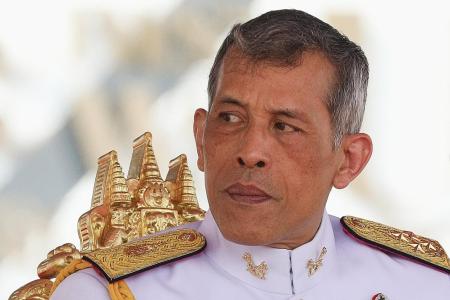Facebook ordered to block illegal sites in Thailand
Social media platform has until Tuesday to remove 131 web pages
Thailand has given social network operator Facebook until Tuesday next week to block illegal content from its site or face charges under the Computer Crime Act.
The country, which has strict lese majeste laws, has detained several social media users since last month, after warning netizens against liking and sharing posts by three of the monarchy's critics, who are all based overseas.
Facebook has 42 million users in Thailand and has the largest presence among the social media platforms there.
It has already taken down 178 of 309 web pages deemed illegal.
Other sites such as Google and YouTube had earlier deleted pages after the authorities sought to block them.
Facebook Thailand told news agency Deutsche Presse-Agentur on Thursday that it will take down content if it determines that they violate local laws.
Facebook has until Tuesday to remove the remaining 131 addresses as requested by the telecoms regulator.
"If Facebook still shows content declared illegal by court orders in Thailand, action must be taken against Facebook Thailand," Mr Takorn Tantasith, secretary-general of the National Broadcasting Commission, told Reuters.
Under Article 112 of the Criminal Code, those who defame, insult or threaten the King, Queen, the Heir-apparent or the Regent face up to 15 years' jail.
Since the military took power in May 2014, the number of lese majeste cases have grown from six to more than 100.
Last month, five people were arrested for posting or sharing content by exiled academic Somsak Jeamteerasakul regarding a plaque commemorating the 1932 bloodless revolution that ended absolute monarchy.
The plaque, embedded in a square in central Bangkok, was alleged to have been removed last month and replaced with a new one that highlights the importance of the monarchy.
Meanwhile, human rights lawyer Prawet Prapanukul, is facing up to 150 years in jail for 10 counts of lese majeste.
Mr Prawet, whose request for bail was rejected yesterday, had defended other activists accused of lese majeste. Another civilian was arrested earlier this month for tagging Mr Prawet in a post.
SELF-CENSORSHIP
The crackdown may lead to the public exercising self-censorship, said Mr Kan Yuenyong, executive director of the Bangkok-based think-tank Siam Intelligence Unit.
"Mature societies need this kind of discourse," Mr Kan told The Straits Times. "It is quite hard to judge what is harmful content, or whether they are provocative or meant to create chaos in society or just academic."
He added that it is impossible to suppress social media, unless the Thai government is planning to follow China's example by putting up a firewall and creating its own social media platform such as Sina Weibo.
Six days after the military coup in 2014, Facebook was blocked for about half an hour in Thailand.
Get The New Paper on your phone with the free TNP app. Download from the Apple App Store or Google Play Store now



